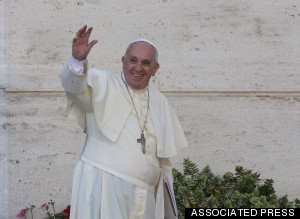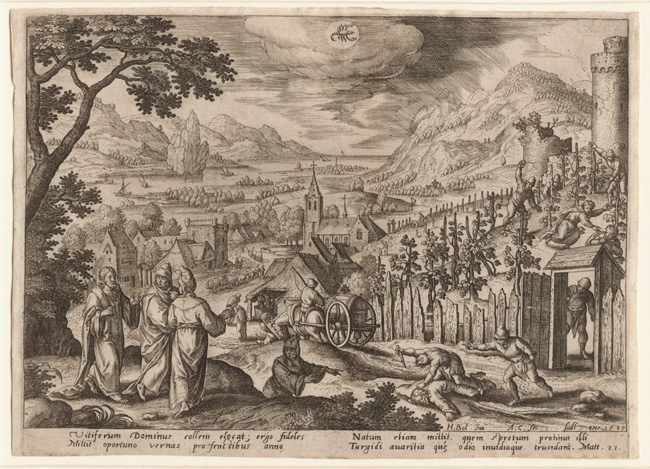What do John the Baptist and Kermit the
Frog have in common?
 Okay. Dumb joke, I know. But it was the
joke which my friend Pastor Kathleen Gahagen used to open her final
sermon at Abiding Savior Lutheran Church of North Tonawanda, New
York. Kathleen always began a sermon with a silly joke. She believed
if there are no signs of joy in church, there is no joy. She was a
sweet, funny, enthusiastic, and beguilingly friendly saint who lost
her bout with cystic fibrosis last spring at the age of forty four.
Blessed are the pure in heart, for they will see God.
Okay. Dumb joke, I know. But it was the
joke which my friend Pastor Kathleen Gahagen used to open her final
sermon at Abiding Savior Lutheran Church of North Tonawanda, New
York. Kathleen always began a sermon with a silly joke. She believed
if there are no signs of joy in church, there is no joy. She was a
sweet, funny, enthusiastic, and beguilingly friendly saint who lost
her bout with cystic fibrosis last spring at the age of forty four.
Blessed are the pure in heart, for they will see God.
The same middle name.
 Okay. Dumb joke, I know. But it was the
joke which my friend Pastor Kathleen Gahagen used to open her final
sermon at Abiding Savior Lutheran Church of North Tonawanda, New
York. Kathleen always began a sermon with a silly joke. She believed
if there are no signs of joy in church, there is no joy. She was a
sweet, funny, enthusiastic, and beguilingly friendly saint who lost
her bout with cystic fibrosis last spring at the age of forty four.
Blessed are the pure in heart, for they will see God.
Okay. Dumb joke, I know. But it was the
joke which my friend Pastor Kathleen Gahagen used to open her final
sermon at Abiding Savior Lutheran Church of North Tonawanda, New
York. Kathleen always began a sermon with a silly joke. She believed
if there are no signs of joy in church, there is no joy. She was a
sweet, funny, enthusiastic, and beguilingly friendly saint who lost
her bout with cystic fibrosis last spring at the age of forty four.
Blessed are the pure in heart, for they will see God.
My sister Maryanne ended her earthly
journey this past year at the age of fifty-seven. She was a gifted
scenic artist who had lived a wonderfully bohemian life in Manhattan
for years, who traveled to Europe, and enjoyed multiple enthusiasm
from classical singing to pro wrestling. Yet she turned her back on
all that and chose to be a simple wife and mom, struggling to make
ends meet in a very unglamorous job for a marketing company in
Tacoma, Washington. I worried about her for years. In the end,
however, I realized that a life has to be judged on balance, and that
there is wonderful romance to be found in commonplace things. Blessed
are the poor in spirit, for theirs is the kingdom of heaven.
My congregation, Faith Lutheran of
Philadelphia, has lost five faithful members since last All Saints
Day. Marilyn, who lost her only son and husband, but who taught us
how to be family in Christ. John, who learned Spanish in his eighties
and sent his first “tweet” at the age of ninety-three, and taught
us all how to age with verve and joy. Doris, a shut-in who faithfully
stuffed cash into an offering envelope every week, blissfully
cheerful in spite of the grumpiness of her elderly husband, and
smiling and perky even in her hospital bed. She taught us the value
of patience. Chick, who was the most loving and compassionate
step-father to his wife's children, who mowed the church lawn, made
generous donations to the offering without calling any attention to
himself, and never raised his voice above a hush. Bob, who mourned
his first wife's death so deeply, but came alive again when he fell
in love in his sixties, a virtual Lazarus, and testament to the
goodness of God.
All of them are blessed saints—the
meek, the mourners, the sweet and pure of heart, the poor in the
things of this world but rich in the things of God. What is a saint,
after all, but a sinner redeemed by God's grace?
I believe it is my purpose in life to
be a bard for the everyday saints of this world. Every life, you see,
is an epic. Every life has something to teach us.
And you too, my friend, are a
saint—made holy even in your weakness—an ambassador for Christ.
May the knowledge of your own
blessedness bring you peace.


